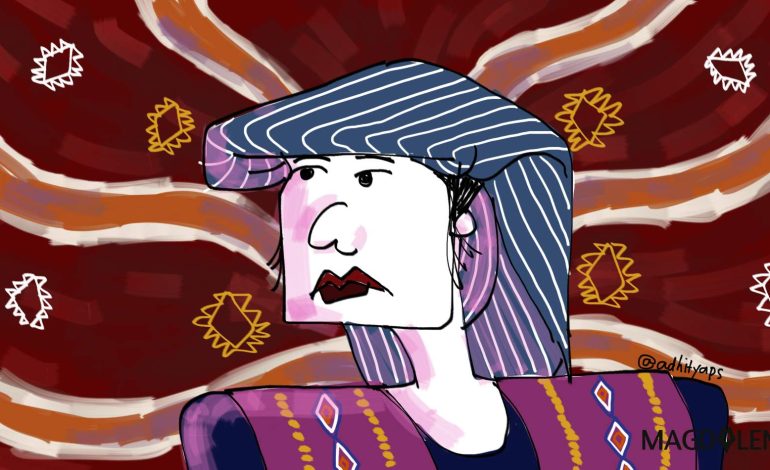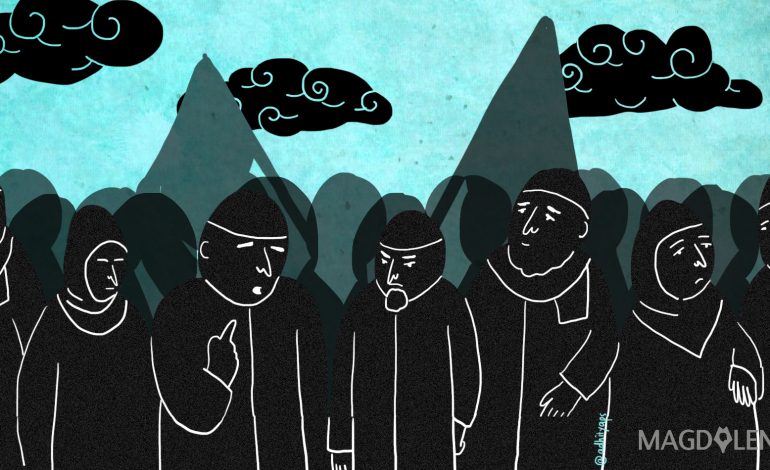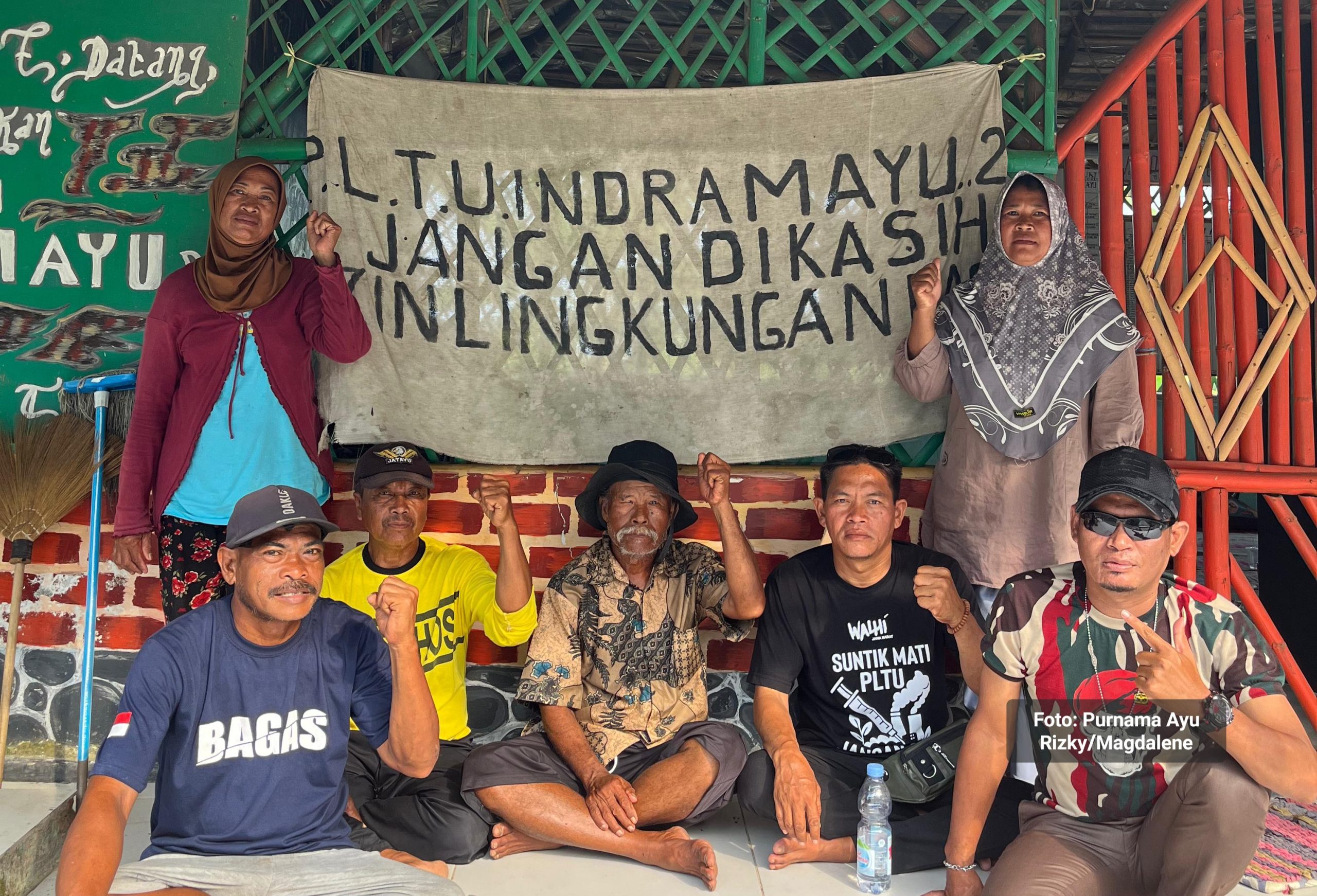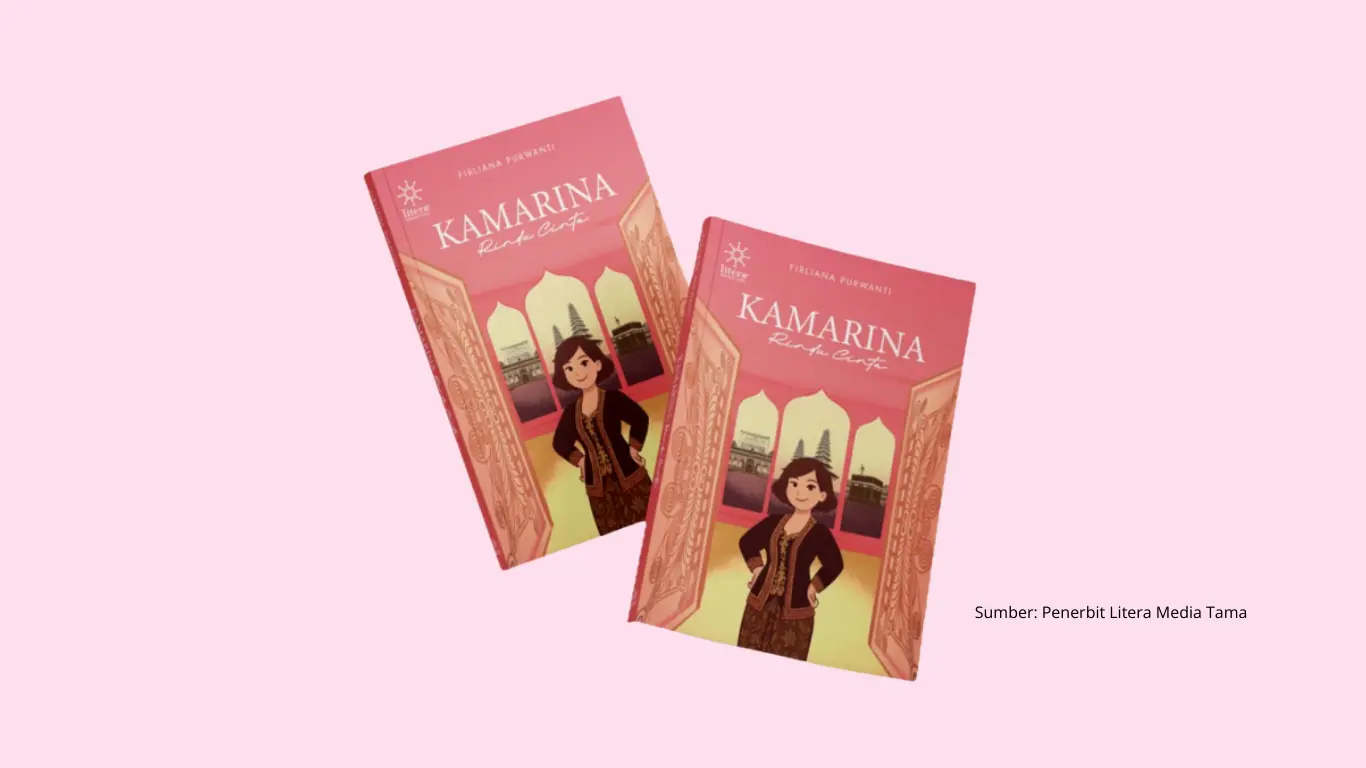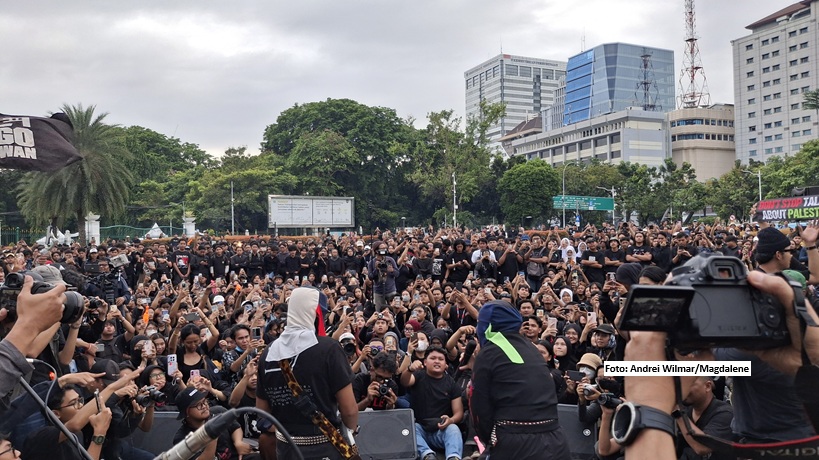The Poetic Jihadists and Toxic Sensitive Masculinity
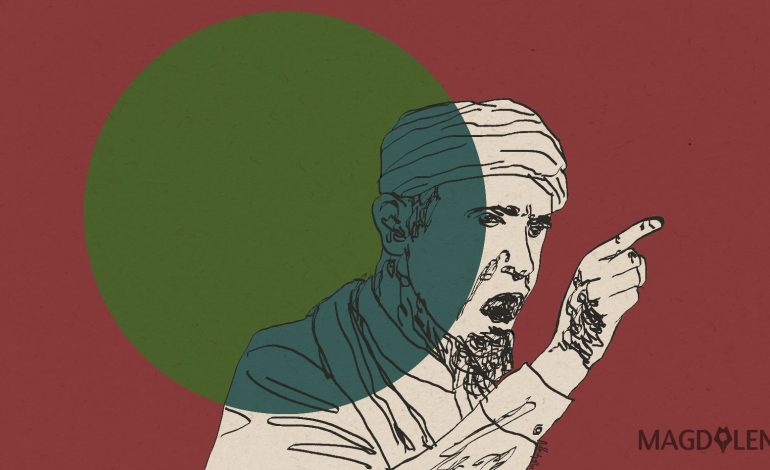
Soon after I returned from Hong Kong, the city made headlines among urbane Indonesians, as New York Times published an article by IPAC (the Institute for Policy Analysis of Conflict) analyst Nava Nuraniyah on Indonesian migrant workers supporting Islamic State (IS) in Hong Kong and Singapore.
In one case study, a woman ran away from her abusive in-laws in Indonesia and experienced drug abuse and homelessness in Hong Kong and Macau. She developed an interest in the ongoing civil war in Syria and befriended jihadists online. She enrolled in an Islamic course in Hong Kong but left after expressing her support for IS.
Meanwhile, in Singapore, a woman was getting a decent pay and a nice employer, but, feeling “empty”, had begun to listen to Salafist podcasts. Again, she got in touch with radical men online, went into a relationship with one and was planning to move to Syria when the Singaporean government found out and deported her.
The article suggested the Indonesian consulate (the only place in Hong Kong where I saw cars parked on the curb) to set up ventures involving migrant workers, for Muslim business owners overseas to train and employ workers, and pengajian religious groups to counsel radicalized members instead of kicking them out.
Eni Lestari from the International Migrants Alliance said that the report could stigmatize Indonesian migrant workers further, while the Hong Kong Police said while they were highly concerned with the report, no intelligence indicated that Hong Kong could be a terror target.
For decades I have been concerned with how Indonesian domestic workers are treated overseas (not that they’re better treated in Indonesia), and how they are stereotyped negatively by both Singaporeans (or Hong Kongers) and by richer Indonesians. There is fear that continued discriminations against them would inflame anti-Chinese sentiments among families and friends of migrant workers both overseas and in Indonesia.
Therefore, it’s surprising to read that even given decent employers and the availability of Indonesian pengajian groups, women in both cases chose to embrace radicalism espoused by strangers online – and believing that it was better than the more mainstream message they got locally.
Days later, I read about the importance of poetry in recruiting Islamic State members, especially the Arabic speakers. Poetry! We would think that action and history videos, books, even football clubs would incite boys and men to Islamic State, but apparently poetry is a more effective recruitment tool.
Osama bin Laden was also a poet, and apparently it counted into his charisma as much as his money, management skills, and guts. According to Norwegian academic Thomas Hegghammer, jihadism is a recent phenomenon, developed during the international guerilla movement against Soviet Union in Afghanistan in 1980s. I would add that the successful (Shia) Iranian Revolution in 1979 also convinced many men, including Indonesians, that jihadism is a more effective revolutionary ideology than communism or nationalism.
Translated into English, jihad poetry romanticizes the writer’s (and reader’s) life as a wanderer in the desert, betrayed by his people, surrounded by his enemies, and looking for his brothers-in-arms apart. It seems that those poems are rhyming and rhythmical in Arabic.
It is said that those poems can drive men crying when sung – though it does not make them think about the bloodshed, misery, and lifetime of destruction they have caused. They believe that while they are persecuted by the world, their persecution of the Yazidis, of other Muslims, and of their fellow nationalities are wholly justified.
Those Arabic-speaking Europeans are not the only men weeping over their persecution complex. A decade ago white “nice guys” were crying over emo songs on why women keep overlooked them. Black hip-hop and R&B singers lament “bitches” who don’t look after them, and I wept over anime songs promising “hitori janai” – not alone (anymore).
Jihadists are also not the only ones romanticizing distant past, with motifs of chivalry, warrior code, and holiness. Many white supremacist trolls on social media use images of the Crusaders or Greek and Roman generals. Both kind of men depend on the comfort of the 21st century (we are familiar with stories of IS recruits deserting after lost their iPhone chargers), and, yet, they long for the medieval era, when war was supposedly glorious and men could become romantic heroes.
Muslim youth in Europe and Australia face legitimate grievance – racism, poverty, and discriminations in housing, job, and education. But, of course, they know better that there is a better way to resist than Salafism. Social justice can connect people from different backgrounds, but it seemed that Islamic State was more popular, instead of activism, because it promised violence, rape, and power.
It is the same for the women who decided to join Islamic State. Why actively going to an even worse form of patriarchy instead of working with mosques and migrant alliances to fight patriarchy in Indonesia and racism in Singapore and Hong Kong? Perhaps like the Arabian-Europeans, Indonesian women who were into IS were also seduced by the sentimental, yet toxic, poetry.
This reminds me: lately my friends have gotten more irritated with the prevalence of memes on Facebook that promote traditional marriage life and that make fun of women who are highly educated, happy to be single, and independent. What surprises me is that one of such collectives proudly calls itself “Meme & Rage Muslim Indonesia”.
“Rage meme” is a very disturbing category, one in which the maker creates crudely drawn and written memes meant to represent nerd rage, against women who ignore them, against bullies, and often against other outsiders (such as queer or migrants). Like their white secular counterparts, those Muslim Indonesian men legitimize digital rage against women (even who wear headscarves), non-Muslims, and even Muslim figures they dislike. It is nerd rage enhanced with religious justification.
I might write further on deconstructing and changing masculinity in the future, but this month reminds us that very horrible kind of masculinity – religious bigotry – can go together with egoistical sensitivity, with tear-jerking poetry.

